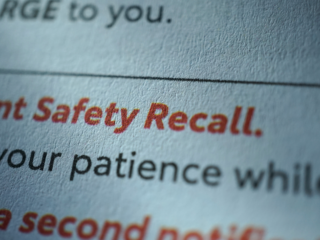Full Decision
Counsel:
- Georgiana Masgras and Kevan Wylie for the plaintiff
- Jillian Van Allen for Georgiana Masgras
- Elizabeth van Rensburg for the Defendant
Loye v. Bowers is a ruling on costs by Justice J. R. H. Turnball in which the defendant was seeking costs from plaintiff’s counsel personally following the trial of a personal injury action.
Liability had been a highly contested issue. Ultimately the plaintiff was successful on the issue of liability, which took up a substantial portion of the trial. He was awarded $10,000 in general damages by the jury, which was wiped out by the deductible. The defendant sought costs for defending the action on a substantial indemnity basis.
Both parties exchanged Rule 49 offers prior to trial. The defendant offered a dismissal without costs, which was withdrawn before trial. The plaintiff offered to settle for $50,000 plus costs and disbursements. Justice Turnball determined that given the results at trial, neither offer triggered Rule 49 cost consequences. However, despite the plaintiff’s success on the issue of liability, Justice Turnball determined that the defendants were entitled to their costs on a partial indemnity basis. He quoted defence counsel, who stated that “on the issue of liability the plaintiff won the battle, but in the end, the defendant won the war.
The defendant sought an order that the plaintiff’s lawyers personally pay the defendant’s costs of the action. The defendant alleged that they were not prepared for trial, failed to agree on issues, forced the defendant to bring numerous motions, failed to have witnesses ready to testify and failed to lead appropriate evidence to support the plaintiff’s claims (as certain claims had to be abandoned).
Justice Turnball determined that while the plaintiff’s case was not perfectly presented, counsel had worked hard and were candid and courteous, and their conduct did not prejudice the plaintiff’s case. He acknowledged that it had appeared to be a difficult case, but the plaintiff was ultimately successful on the issue of liability. Justice Turnball also noted that plaintiff lawyers often fund cases for their clients and are forced to make business decisions with respect to which aspects of the claim to spend money on ( e.g. future cost of care/income loss reports), which is not an issue that well-resourced insurance companies typically encounter.
Justice Turnball relied on the recent decision in Mitchinson v Marshall (2018 ONSC 5632), which outlines circumstances where lawyers may be required to pay costs personally:
The threshold of making an order to award costs against a lawyer personally is a high one, to be exercised in exceptional circumstances. Examples include cases that involve abuse of process, frivolous proceedings, misconduct, dishonestly or action taken for ulterior motives where the effect is to seriously undermine the authority of the courts or seriously interfere with the administration of justice. Virtually, all the cases involving an order to pay costs personally, whether under the Rules of Civil Procedure or otherwise, are based on a marked and unacceptable departure from the standard of reasonable conduct expected of a lawyer in the judicial system. Mistakes, negligence or errors in judgment are not typically sufficient to justify the costs aware.
Justice Turnball determined that this case was not one that warranted the plaintiff’s lawyers to pay costs personally.
The plaintiff’s adverse cost protecting insurer, JusticeRisk, had suspended coverage five days before the start of the trial. While the specific reasons for the suspension were not outlined due to solicitor-client privilege, JusticeRisk had determined that the insured’s conduct had violated the spirit of the policy resulting in a suspension of coverage.
Justice Turnball reviewed the relevant factors outlined in Rule 57.01 and the Defendant’s Bill of Costs. He made significant deductions to their outlined trial preparation fees, disbursements and expert fees and ultimately ordered that the plaintiff pay partial indemnity costs in the amount of $189,298.68.
This decision should serve as a reminder for counsel on the circumstances in which they or their clients may ultimately be responsible for costs even when they have some success at trial.














